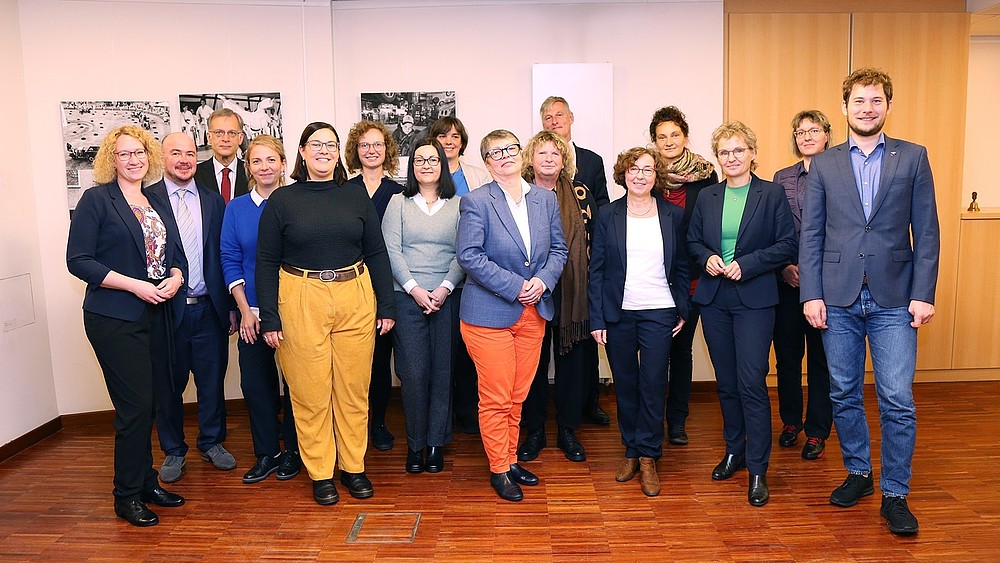The TRAWOS Institute with the Alliance of Lusatian Municipal Equal Opportunities Officers in Brussels

From October 24 to 27, 2023, the Alliance of Municipal Equal Opportunities Officers of Lusatia, represented by Aline Erdmann (City of Cottbus), Fränzi Straßberger (City of Bautzen), Johanna Fischer (District of Oberspreewald - Lausitz), Lisa Temesvári-Alamer (District of Spree - Neisse), Marika Vetter (District of Görlitz), Korina Jenßen (City of Hoyerswerda), traveled together with Dr. Julia Gabler and Marie Melzer from the TRAWOS Institute/University of Applied Sciences Zittau/Görlitz to Brussels at the invitation of the Saxon Ministry of Justice and for Democracy, Europe and Equality (SMJusDEG) and the Brandenburg Ministry of Social Affairs, Health, Integration and Consumer Protection (MSGIV). The aim was to present findings from the development of structural change in Lusatia to date as well as questions and demands on the process for a gender-equitable transformation to representatives of various European institutions and to discuss the topic of gender equality in European transformation processes.
As a strong sign of support, the alliance was accompanied by the two ministers Katja Meier and Ursula Nonnemacher, the two state secretaries Dr. Gesine Märtens and Dr. Antje Töpfer and the Brandenburg State Commissioner for Gender Equality (LGBA) Manuela Dörnenburg. Ska Keller, Member of the European Parliament, also supported the trip.
All information about the project can be found here.
Negotiations are currently underway in Brussels on the criteria for the next European funding period from 2028 to 2034: this will set the course for what will work in the municipalities and strengthen the regions. The right moment to contribute experiences from the municipalities.
These topics were discussed with representatives of the European Parliament, the European Commission, the European Committee of the Regions and the Council of European Municipalities and Regions; also how existing instruments can be further developed and used more effectively, for example to what extent the European Charter for Equality between Women and Men at local and regional level can be a helpful instrument for municipalities to translate equality into concrete measures.
All of the discussion partners emphasized the importance of communicating local experiences for their actions in Brussels.
The two-day expert exchange and the numerous personal contacts have laid the first foundations for Europe-wide and cross-level networking of stakeholders involved in structural change issues.
The trip was commissioned by the Saxon State Ministry of Justice and for Democracy, Europe and Equality (SMJusDEG) - Saxony Liaison Office Brussels in cooperation with State Secretary Dr. Gesine Märtens, Minister Katja Meier and the Ministry of Social Affairs, Health, Integration and Consumer Protection of the State of Brandenburg (MSGIV).